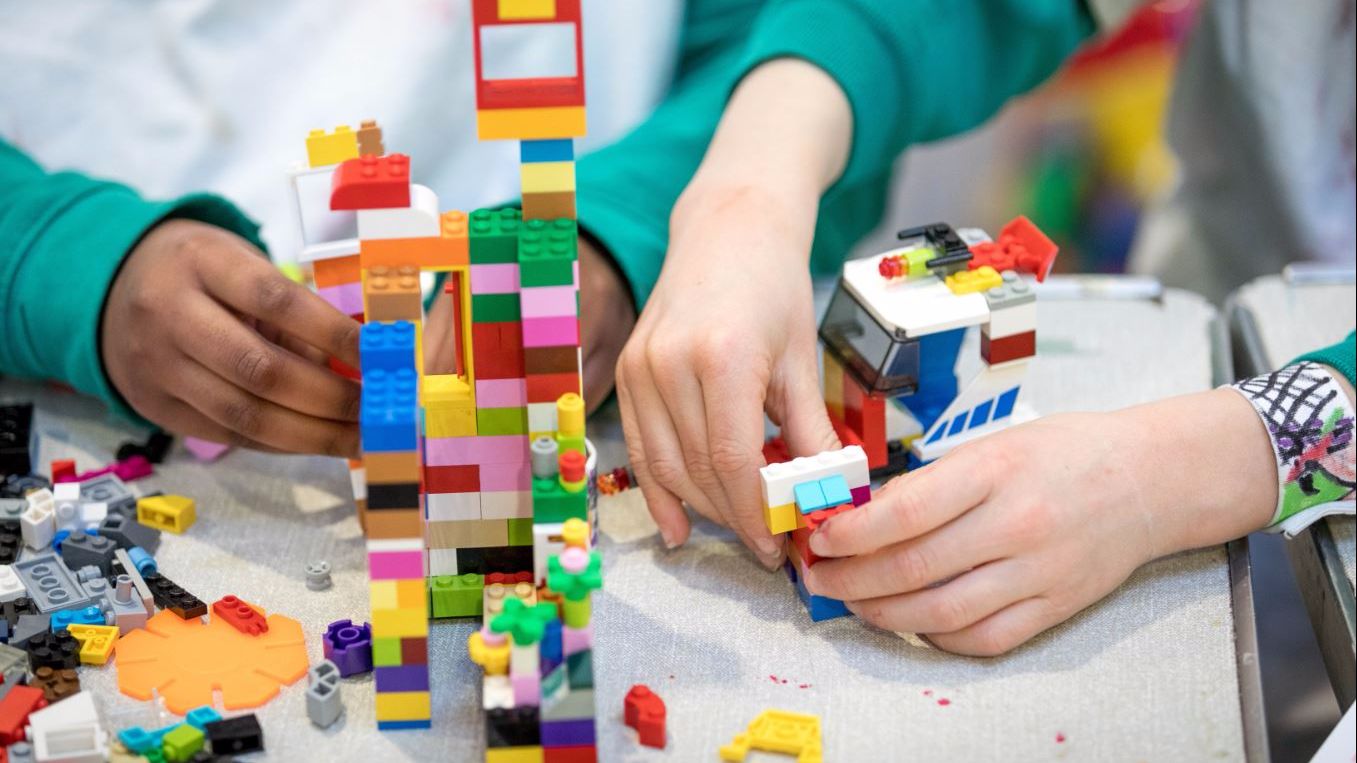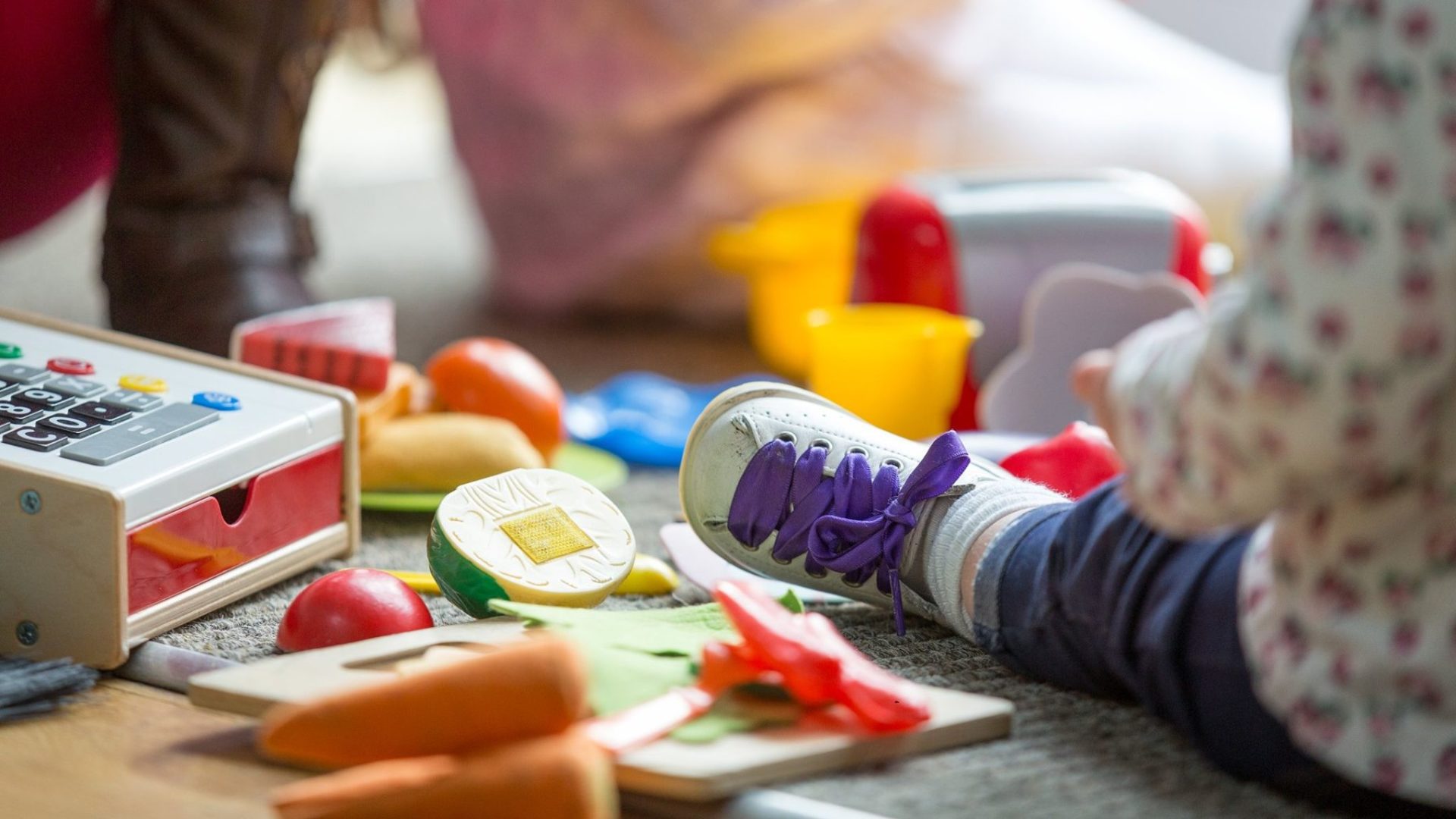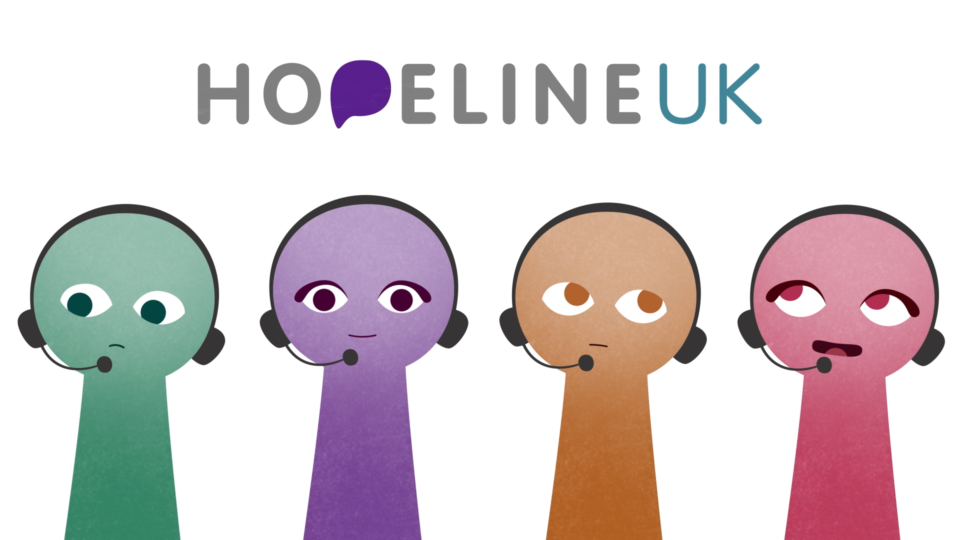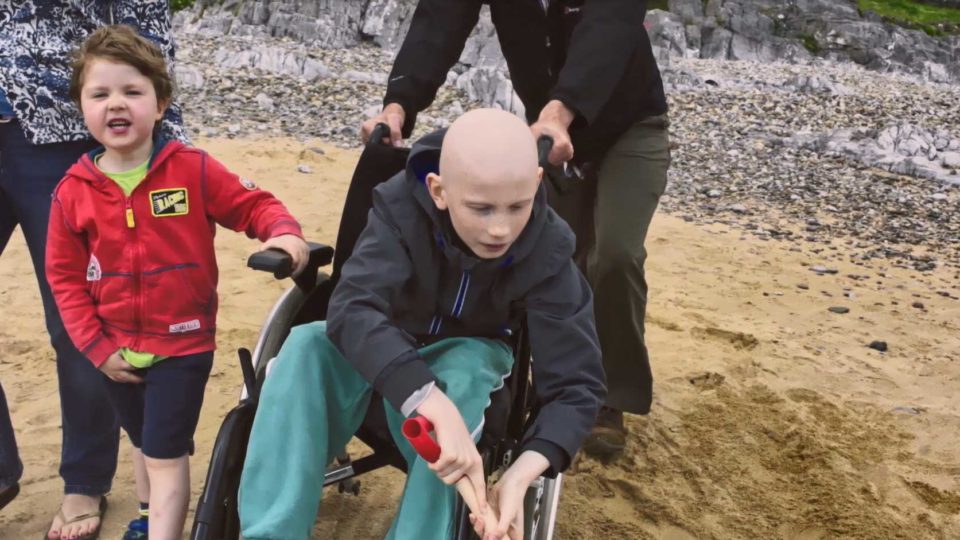
The fun and freedom of play
Paul Liddell, National Officer for BBC Children in Need, works closely with the many projects and charities we support, seeing first-hand the difference made to children’s lives. In a special piece, Paul explores why having the chance to play is so incredibly important for all children.

In my role as a National Officer for BBC Children in Need, I am in the privileged position of seeing first-hand where and how the money donated to the charity is spent.
Thanks to the generosity of our supporters, we are able to fund a huge range of local charities and projects which support some of the most disadvantaged and vulnerable children and young people right across the UK.
What is clear to me from reading reports, speaking with the organisations who deliver these projects and listening to children, the one thing that unites virtually all of them is that they allow children and young people the opportunity to play.
What can be more fundamental to childhood than playing?
When I think of my own childhood (not so long ago), I think of playing in the streets, climbing trees, building dens, and tearing around playgrounds. From my experience though, today’s children are not always getting the same opportunities and it has never been harder for children to play.
According to research by the Policy Studies Institute in 2015, in 1971, 55% of children would travel on their own to places other than school. By 2010, that figure had dropped to 33%.
That free play most of us remember is being replaced by young lives spent indoors, on screens and under the constant supervision of adults. This is especially true for more vulnerable and disadvantaged children: 51% of disabled children have been excluded from play provision for example (“Making the Case for Play”, Sense, 2016).
This life spent indoors is associated with some shocking statistics.
According to research carried out by the NHS in their Health Survey in 2015, almost 80% of 5 to 15 year olds aren’t getting the required physical activity to keep them healthy. More than 20% of children are overweight or obese when they begin school and this rises to 30% by the time they leave primary school (National Child Measurement Programme 2015-16).
Beyond the physical challenges, figures from the Mental Health Foundation show that 10% of children and young people are affected by mental health issues.
Nowadays we have the evidence to show that play is vital for children’s development.
There are the physical benefits that provide children with the strength/coordination to dress themselves, hold a pencil to write and get the exercise to keep fit.
There are social and emotional benefits such as positive mental health, resilience and building healthy relationships.
There are also cognitive benefits such as risk assessment, problem solving and skills that support maths…
The list goes on, but ask any child and they will tell you quite simply that play is fun!
BBC Children in Need strives to make a difference for those children who might not have much fun in their lives, whatever their age or ability.
I am very proud that BBC Children in Need recognises the value of play and champions playfulness. While play runs like a seam through all the work we fund, in the last year we funded over 830 projects specifically using play to make a difference in the lives of approximately 140,000 children and young people.
We fund play of all types: outdoor, free play, creative play and play as a therapeutic intervention. We also fund workers using play to make a difference to children and young people – play workers, play therapists and other workers such as early years and youth workers who use play as a tool.

Among the grants I manage in Scotland, there is an organisation called LINKES in Glasgow where our funding supports children to safely play outside.
These children might otherwise be stuck inside because parents are worried for their safety.
Now they are playing hopscotch, pirate tig and having water fights in the sunshine with support and encouragement from workers. Feedback from the community there has also noted how the area feels safer and a nicer place to live because children are outside having fun.
Just up the road from them is Buddies, who use our funding to deliver a playscheme for disabled children.
This type of project is particularly important. There is no other play provision for disabled children with complex needs in Glasgow.
Across the UK, 9 in 10 parents of disabled children say their child doesn’t have the same play opportunities as their non-disabled peers (“Making the Case for Play”. Sense. 2016). Children with disabilities become lonely, socially isolated and stigmatised as a result and that knocks their confidence to take part. A third of parents say their child doesn’t take part in sports, for example, because they are worried about people mocking them.
A project like Buddies means children can have fun with their friends in a supportive and accessible environment.
In Castlemilk in Glasgow, the Jeely Piece Club has children cooking over campfires, climbing trees and building dens.
They take part in scavenger hunts and make mud slides in what is a very deprived, urban area. Thanks to our funding, they will have developed strong friendships and a knowledge of how to play on their own and without adult guidance.
While our projects have adults on hand, they are there to encourage and facilitate, not to direct and guide. Children really just need the space and freedom to play in a safe and supportive environment and thanks to funding from BBC Children in Need, they can have it.
All of us adults should reflect on the value and importance of play.
Don’t just take my word for it: go and jump in a puddle, kick up some leaves, dance to your favourite song like no-one’s watching!
I guarantee you will see the wider benefits of play too.


